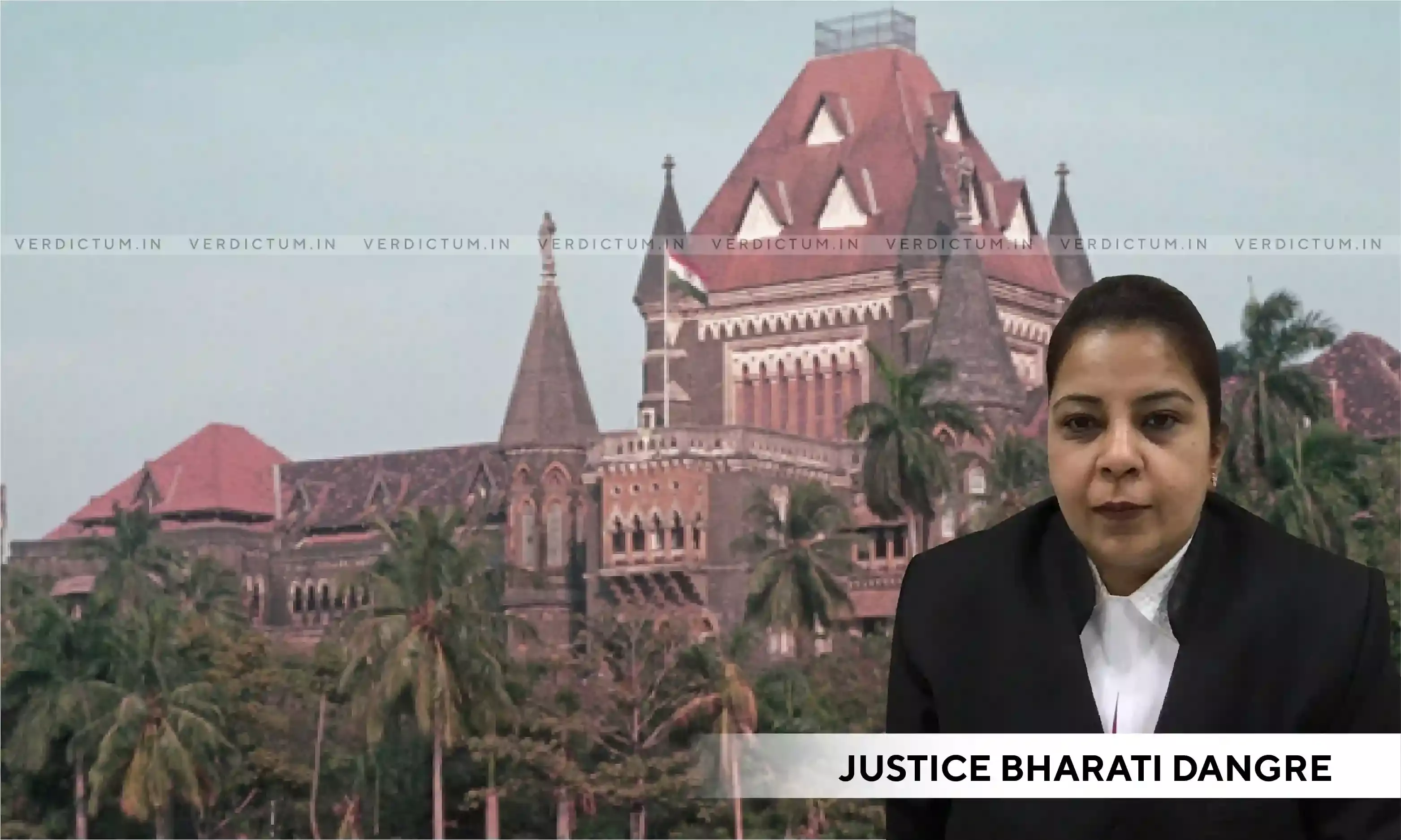No Reason To Infer That Relationship Was A Forced One: Bombay HC While Discharging 67-Yr-Old Man In Rape Case
The Bombay High Court has discharged a 67-year-old man from a rape case registered against him by a 61-year-old woman on the ground that there was no reason to infer that the relationship between them was a forced one.
The Court said that an offence of rape is attracted when an act is done against a will, and without a woman’s consent and that every act done against the will is an act without consent, but every act without consent is not necessarily against her will.
A Single Bench of Justice Bharati Dangre observed, “It was a relationship between the two adults, capable of understanding the consequence of their actions, and by no stretch of imagination, it could be inferred that the physical indulgence was without the consent of the prosecutrix or against her will. … the relationship between the prosecutrix and the petitioner continued for a decade and even as per her own narration, she was treated as his wife for all purposes, and it can be easily inferred from their conduct that the relationship was consensual. There is no reason to infer that the relationship shared, was a forced one. Though it is alleged by the prosecutrix that the petitioner had no intention to marry her, it is not her case that the sexual relationship was established with her on the pretext of marriage, as at the relevant time, she was aware that the petitioner is already married.”
The Bench noted that the prosecutrix continued to enjoy the privileges to which a wife is entitled, including luxurious travels, receipt of jewellery, clothing, etc., and that even she had access to the petitioner’s flats and as per her own version, a house was constructed for her in form of a farmhouse.
Senior Advocate Ashok Mundargi appeared on behalf of the petitioner while APP S.R. Agarkar appeared on behalf of the State.
Facts -
The petitioner had filed a petition invoking Section 482 of the CrPC for quashing and setting aside the order of the Additional Sessions Judge rejecting his discharge in the case under Sections 376, 354, 354A, 323, 324, 504, and 506 of the IPC. The complainant filed an FIR against the petitioner in 2015 alleging him of forced physical relations with her on multiple occasions since 2005 under the false pretext of marriage.
The complainant was a divorcee and joined the post of Head Master in a school where the petitioner was the Chairman who offered his sympathies to her and on pretext or the other made every attempt to meet her personally. He made every attempt to come closer to her and expressed his dissatisfaction with his own married life while expressing his desire to solemnize marriage with her and thereafter, a physical relationship was established between the two.
The High Court in view of the above facts noted, “… the complainant and the petitioner continued to project to the Society as husband and wife and they shared a mutual relationship for considerable long period of time. … When the allegations in the complaint are carefully perused, which has invoked the offence of rape as well as the offence of outraging modesty, it is evident that a consensual relationship was shared by the couple from 2005, till she lodged the complaint somewhere in the year 2015 i.e. almost for a decade. The complainant, at the relevant time, was aged 54 years and the petitioner, aged almost 60 years. The narration in the complaint would clearly lead to an inference that the relationship was mutual.”
The Court further asserted that the prosecutrix was well aware of the fact that the petitioner was a married man and despite the same continued the relationship and she was a widow, married on two occasions.
“Section 375 which punish an act of ‘rape’ would extend to sexual intercourse by a man with a woman, against her will and without her consent. … The core concept under consent is choice and not will. Will is a desire, longing, ability to do something that is intended. Consent follows once will is generated. … It is also not a case where a young woman is lured into physical relationship by a man under the pretext of marriage. There is nothing to show that for a long period of 10 years, every physical act was preceded by a promise to marry. The consent of a woman with respect to Section 375 of IPC, involve an active and reasoned deliberation towards the proposed act, and unless and until it is established that the promise of marriage was a false promise given in bad faith and with no intention of being adhered to, at the time it was given, it cannot be concluded that it was a promise not intended to be complied”, said the Court.
The Court said that no offence is made out under Section 375, in the peculiar circumstances narrated by the prosecutrix herself, and similarly, the complaint also does not justify invoking Section 354 and 354A of IPC, considering the nature of the relationship shared by them for a decade. It concluded that the Judge failed to exercise the power available to him in discharging the accused in the absence of sufficient material to take the trial ahead and specifically, when the prosecutrix in her affidavit filed before the Sessions Judge, had expressed her intention not to proceed ahead.
Accordingly, the Court allowed the plea and discharged the petitioner.
Cause Title- Vishwas Bajirao Patil v. The State of Maharashtra (Neutral Citation: 2023:BHC-AS:13891)




